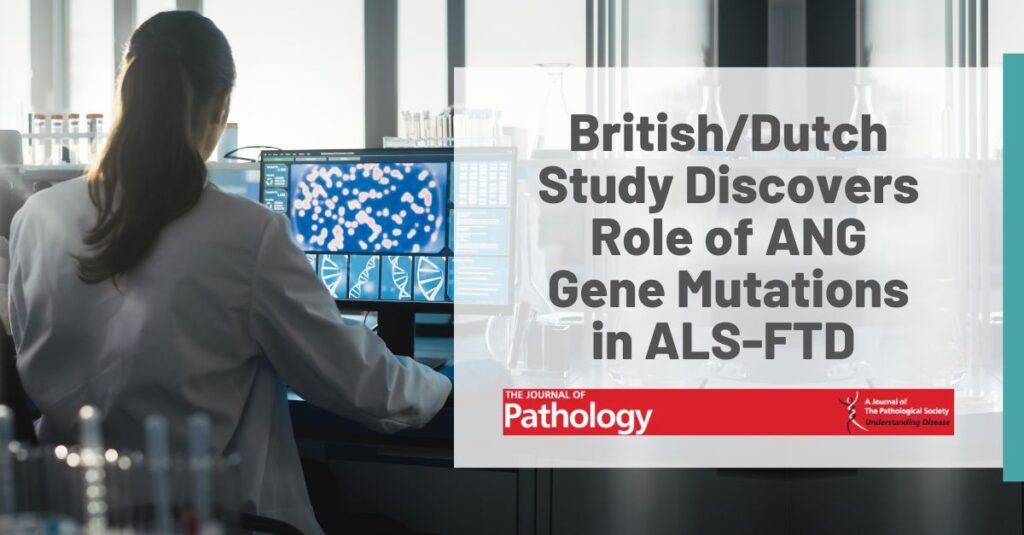British/Dutch Study Discovers Role of ANG Gene Mutations in ALS-FTD

Researchers at the University of Bath in the United Kingdom and the University Medical Center Utrecht in the Netherlands have uncovered an association between an inherited genetic variant of the angiogenin (ANG) gene and ALS-FTD, according to a study published in The Journal of Pathology.
It is now recognized that a pathogenic expansion of the C9orf72 gene is the most common cause of hereditary FTD, ALS, and ALS-FTD. Over time, this understanding has evolved, and variants in several other genes have been implicated as risk factors of ALS-FTD, including ANG variants.
Normally, the ANG gene regulates proteins that help the body create new blood vessels from pre-existing ones, a process known as angiogenesis. A previous study of ANG by the authors showed that it also plays a role in protecting nerve cells from damage due in part to its ability to induce a stress response. They noted that other researchers had uncovered ANG’s role in regulating the development of stem cells into specialized cells during growth in mice and zebrafish.
The authors wanted to determine if ANG played a similar role in humans. They examined ANG’s role by growing “mini-brains” from samples contributed by a family with a history of ALS-FTD. Using genetic testing results to identify who was affected, the researchers obtained samples from two family members with a pathogenic ANG variant, and one control sample from a family member who did not. The samples were used to trigger the process of nerve cell development (called “neurogenesis”), where stem cells become specialized neurons. By analyzing the neurogenesis process through the mini-brains’ growth, the scientists could identify how the ANG variant affected the development of neurons.
The authors noticed that the stem cells affected by the ANG variant were delayed in transforming into nerve cells, which led to developmental defects when they finally became neurons. They noted physical abnormalities in neurons affected by the ANG variant, such as specific structures being disorganized in size and shape. Additionally, the altered neurons were more sensitive to wear and tear and eventual cell death due to an impaired stress response.
“This suggests nerve-cell degeneration may be primed by defects occurring during early development,” author Dr. Vasanta Subramanian told Neuroscience News. “This new discovery adds to our understanding of angiogenin and its importance in protecting us from diseases associated with aging.”
While the study sheds light on the relationship between ALS-FTD and the ANG gene, the authors note that more work is needed to detail how they contribute to the onset of the disease. Further work is also required to determine how ANG interacts with other proteins associated with ALS-FTD.
There are many different genes that can cause FTD, and while genetic testing can show if you have an FTD-linked gene, AFTD strongly recommends genetic counseling as a first step to consider if testing is the right choice for you.
Are you interested in participating in research for FTD? Join the FTD Disorders Registry, a powerful tool in the movement to create therapies for FTD that can help you keep up to date on the latest research opportunities while providing your lived experience to guide the work of researchers.
By Category
Our Newsletters
Stay Informed
Sign up now and stay on top of the latest with our newsletter, event alerts, and more…
